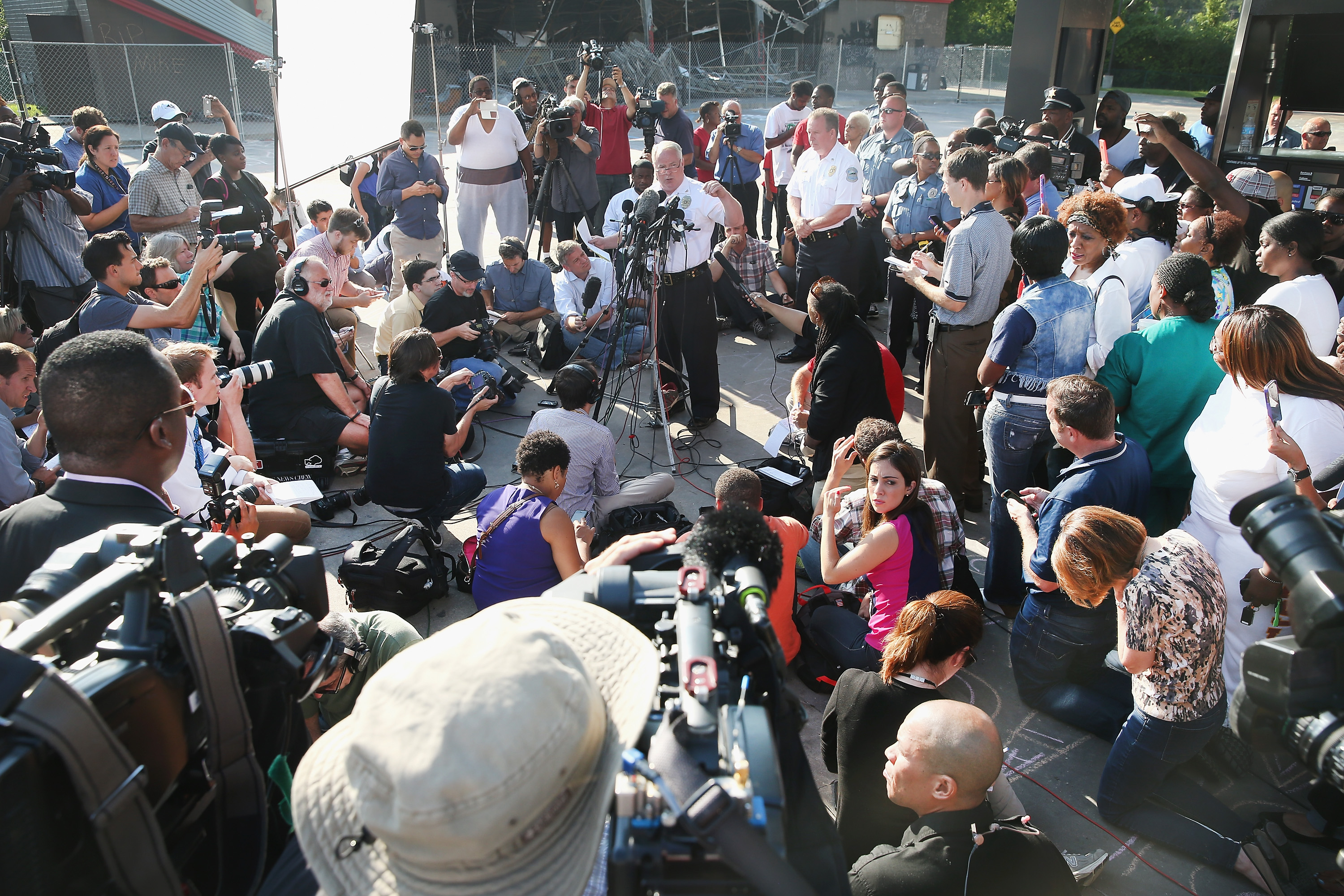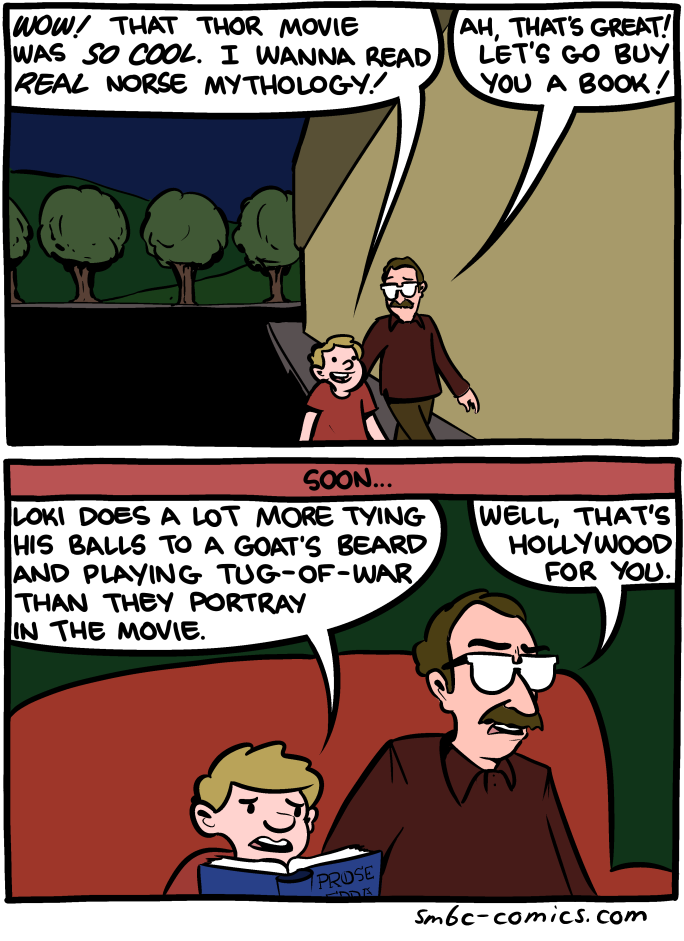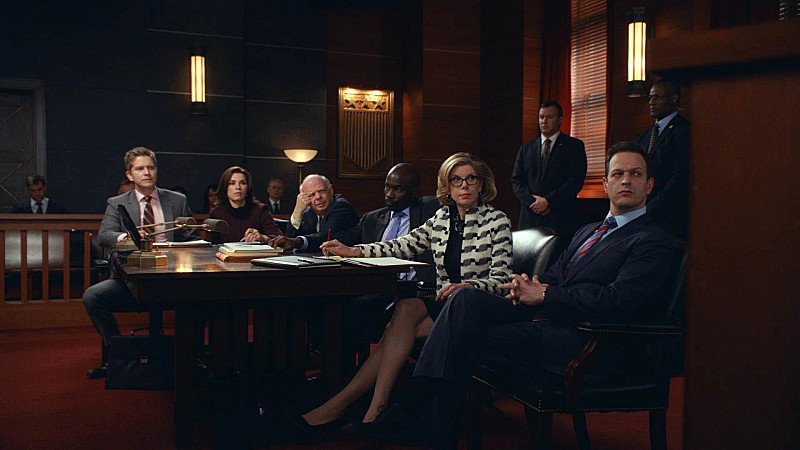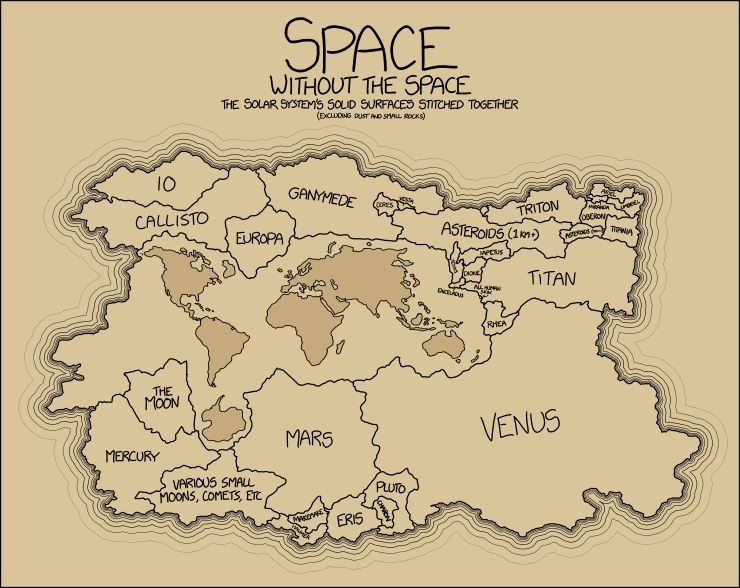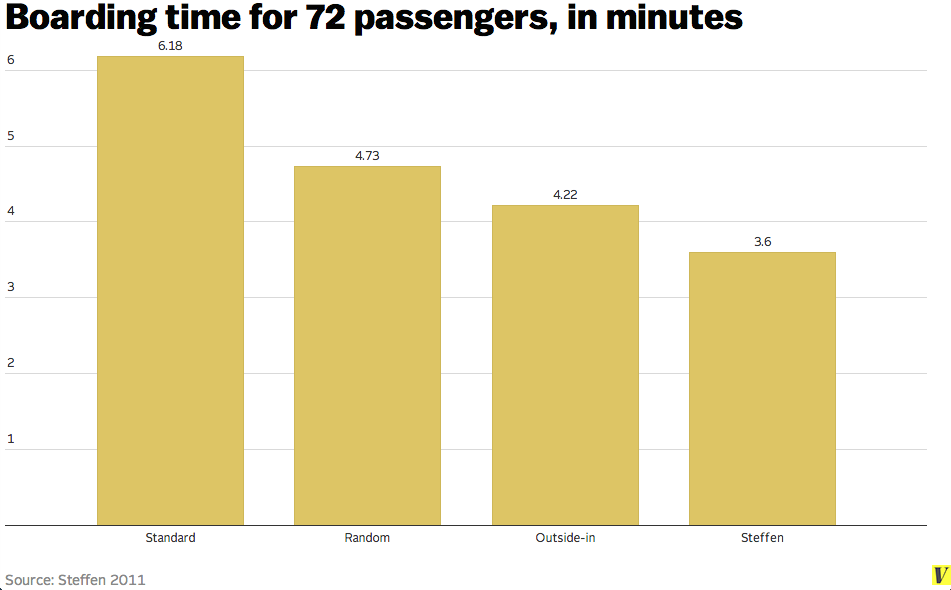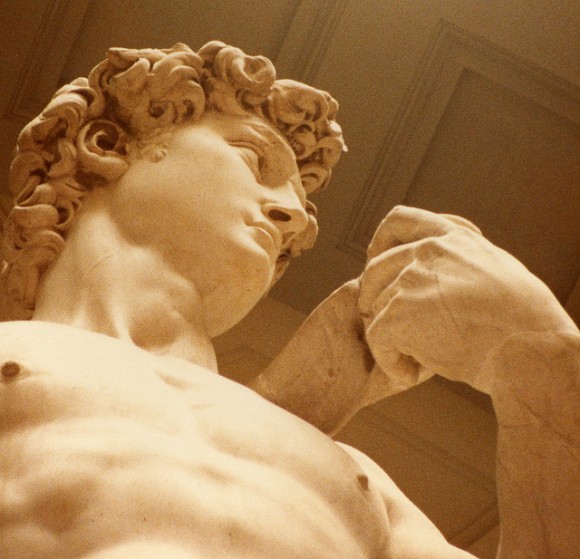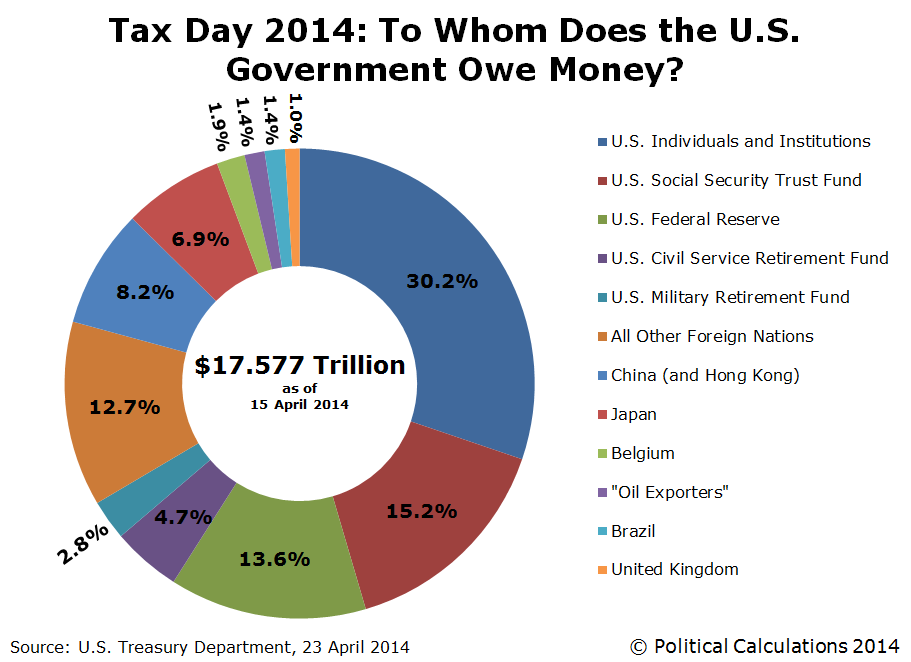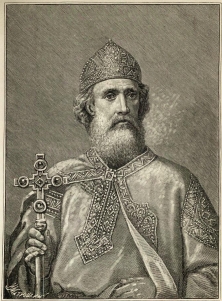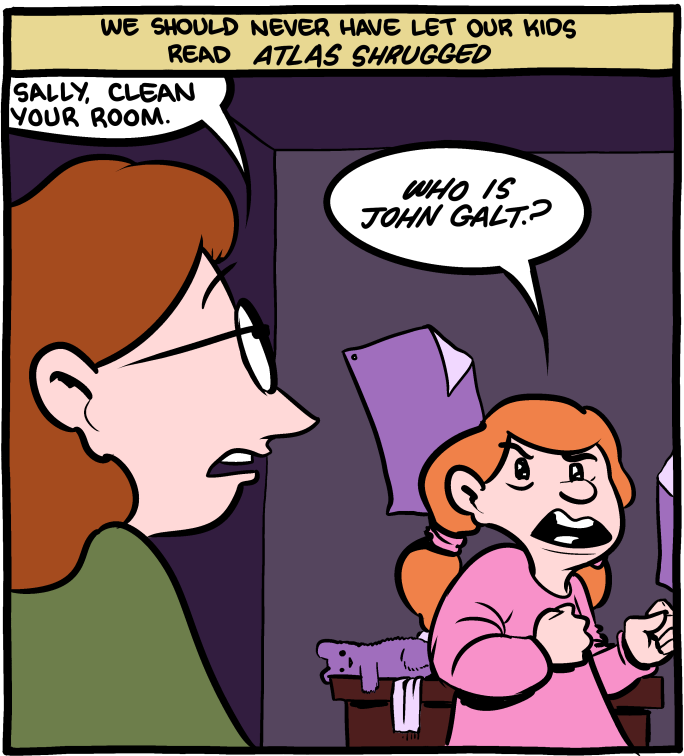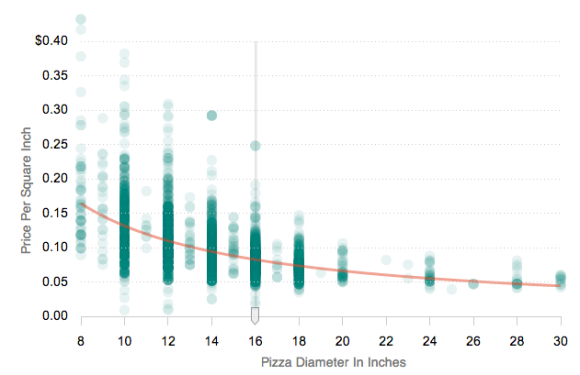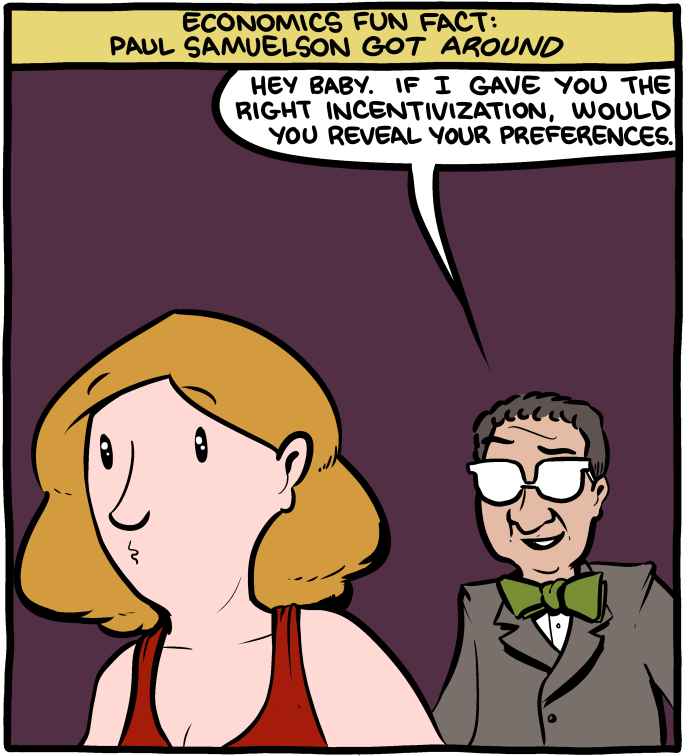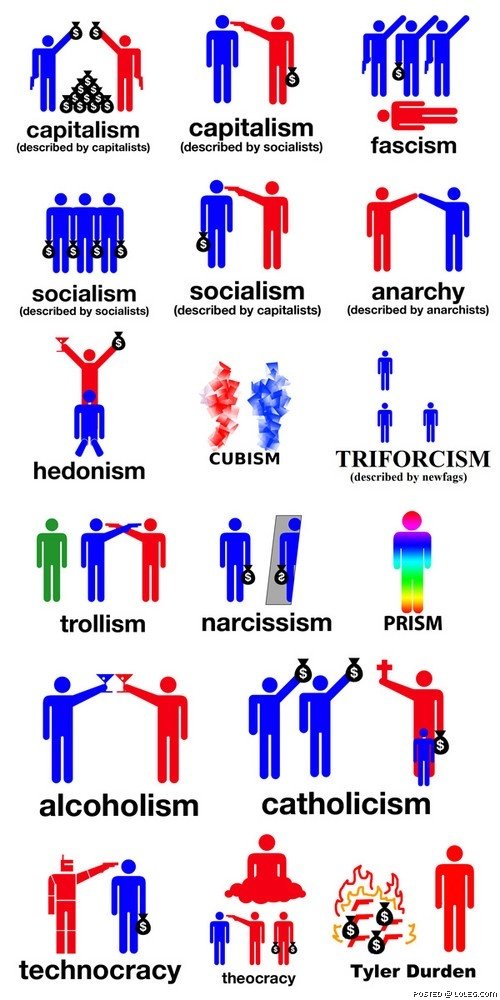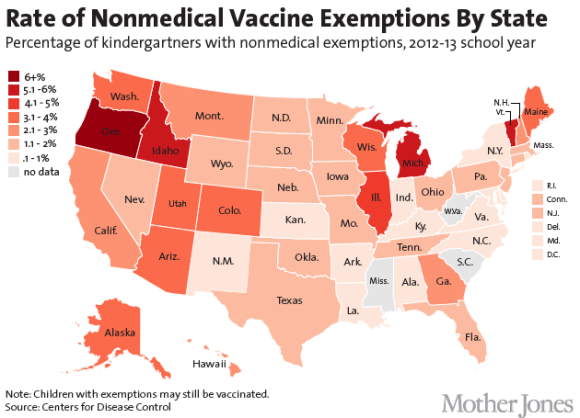
Doug Baldwin speaks on player priorities; trolls respond with envy; Jason clears up a few matters.
Our own Doug Baldwin recently did a guest commentary about players' perspectives on free agency, and the need to earn money while they are still able. Most of the comments (link is to ESPN's transcript) were supportive. But a few critics displayed a typical range of cognitive dysfunction, including: logical inconsistency, a failure to consider alternatives, bad math, and raw envy.
Raw Envy
I'm currently channeling the spirit of a 17th-century laborer (really!) who is envious of our running water, abundant food, indoor heat, and 40-hour work week. From his perspective, our basic lifestyle is incredibly lavish.
And yet we scrutinize the price of every item we buy at the store, complain about our rent, ask for raises and overtime, and change jobs to get more money. We do this out of greed and not for survival. The proof is in the fact that we parlay our savings and earnings into such luxuries as private automobiles, cable television, computers, vacations, etc.
From the perspective of our 17th-century laborer, he was cheated out of these basic luxuries by mere happenstance. He hates us for having what he did not, and translates that into an accusation of avarice in our "excessive" desire for consumer goods. If he had a refrigerator and two days off every week, he wouldn't expect a television!
Now look at some of these comments from the transcript:
"However, unlike normal working Joes, he's made $1,400,000 in his first three years on the job ... In the end, this comes off just as more whining from the 1%."
"I could buy an awesome house and retire on the same amount of cash that took you 1,000 days to earn."
"Ya'll are a bunch of overpaid douchbags regardless if you play for my team or not. You get paid stupid amounts of money to do something that is a hobby and recreation for us average Joe's. Hell, if I could make $1.4 million a year for playing and winning racquetball tournaments... I wouldn't be whining... "
The Kübler-Ross model of the five stages of grief includes a step known as bargaining. Bargaining involves an irrational hope of "negotiation for an extended life [usually] made with a higher power." People under the extreme emotional stress of grief deserve our sympathy. People under the extreme emotional stress of spiteful envy deserve our scorn.
Because that is the exact and exclusive sentiment being expressed in the comments above. These people do not want Doug Baldwin to experience some kind of enlightened attitude. They want his money for themselves. They want the money for doing what they're already doing. Subconsciously, they are trying to achieve this impossible windfall by bargaining with a higher power. They are trying to undersell the players with a lower offer. Again and again, when detractors say that a player contract for millions of dollars is "too much", they inevitably add "I'd be willing to take a few million less." By which they mean: "I'd be willing to take a bunch of his money."
There are no objective standards. Contract for $5 million? "What a douche! I'd settle for $1.4 million." Contract for $10 million? "Greedy bastard! I'd be happy with $7 million." Contract for $22 million? "Total ass! $18 million would be plenty for me." Witness the hypocrisy. These people would take $18 million without the slightest hint of shame for it being undeserved, so long as they can point the finger at someone with more money. Then they will turn around and pronounce judgment on someone earning less than a third that amount.
Logical Inconsistency
A more admirable sentiment comes from fans who've cheered for players on their favorite team, and want to see some reciprocal loyalty. Fair enough-- that's part of being a sports fan. But we go too far when we question that individual's character for moving on. It's not as if these players are born and raised to play for their first pro team. Michael Bennett came to Seattle from Tampa Bay-- does it make sense to ask for loyalty to the Seahawks while ignoring the fact that he jumped ship from the Buccaneers? Baldwin himself went to high school in Florida and played college ball at Stanford, but shunned NFL teams in both his home and adopted state when the Seahawks offered him a comparatively huge UDFA signing bonus. The team that woos the player with the biggest contract is displaying admiration and confidence-- shouldn't that be reciprocated?
Then there's the ridiculous assertion that players who consider "other factors" in choosing a free agency destination set some kind of standard for being "less greedy". Does that make them any less selfish? Every player is going to weigh job satisfaction, location, and the chance of winning against financial compensation, then choose the best combination. If an individual values his immediate happiness more, does that make him a better person? Championship glory is fleeting and it won't put the kids through college. The player who takes more money at least has the option of deferring his rewards until later in life, and retains a fungible asset that can be spent a variety of ways. Again, it comes down to envy: Most of us have some control over who we hang out with, where we live, and what kind of work we do. We aren't jealous of athletes for having these things as well. It's the money that they get and we don't which incites criticism.
Alternatives
The NFL has a salary cap, minimum spending rules, and free agency. These ensure not only parity, but a peak level of competitiveness (even when a pair of 2-13 teams meet in the last game of the season, there is no slacking off).
Every fan wants to see his team win the Super Bowl, and if players accept sub-market contracts to make that possible, we're going to be thrilled. But that's ultimately a zero-sum game. The NFL cannot be composed of 32 Miami Heats. So being unhappy that a player wants more money to play for your team is understandable; but complaining that players across the league are wrecking their team's salary caps via greed is just plain stupid. By that logic, the NFL would be flush with cheap talent if we gave every team two first-round draft picks.
Ultimately, it's hard to imagine what these self-righteous whiners could possibly want (other than a free load of money for themselves). Let's say a player can get $7 million per year as a free agent but decides that it would be "greedy" to take that much money. So he talks his suitor down to $5 million a year. That other $2 million isn't going to be handed out to underpaid rookies, minimum-contract veterans, or children's hospitals. It's going to get used to re-sign a Joe Flacco, extend a Mark Sanchez, or acquire an Albert Haynesworth.
Math
Now we get to the fun part. Some folks are astounded that anyone could possibly want more money when he's already getting
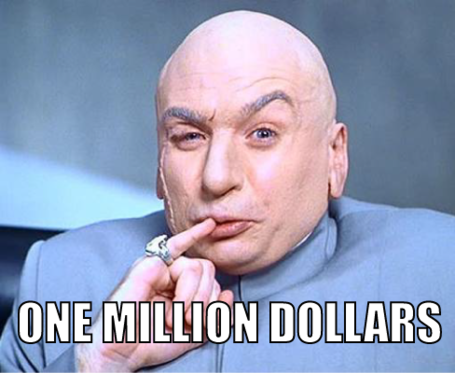
But a million dollars doesn't buy what it used to. In another twenty years, it will buy even less.
Normal wage earners not only have their relative income increase as they get closer to retirmenet (from job experience), but their absolute income is also compounded by wage inflation. With peak earnings in their 50's, there aren't many years of inflation left before retirement. When earnings are concentrated in a person's twenties, inflation is a big, big, deal.
And to top it off, concentrated earnings can push you into the highest tax bracket, even if your overall life earnings may be very pedestrian on average.
Calculating the inflation-adjusted lifetime value of a lump sum is a bit tricky, and requires integral calculus. But as long as I'm in communion with 17th-century spirits, I've called on Sir Isaac Newton to help us out (spare me the Gottfried Leibniz apologists, I needed a ghost who could speak English). The formula for per-annum, inflation-adjusted income looks like this:

ln is the natural logarithm, and the inflation rate is given as an annual multiple (e.g., for 3% annual inflation the rate would be 1.03).
The mean inflation rate over the last 10 years is 2.39% (1.0239). Federal income tax on earnings above $450,000 is currently 39.6%.
And, just for comparison, the 2011 median household income in the U.S. was $50,054 per annum. Adjusting for inflation up to 2013 (assuming wage inflation matches the CPI) and deducting federal taxes, the after-tax income would be $46,395.
Also for 2011, households headed by persons between the ages of 45 and 54 had a mean income of $77,634 ($70,414 applying the same inflation and tax adjustments to 2013 dollars). With that in mind, here's a sampling of how much money an NFL player would have available each year with a given initial earnings total, inflation rate, tax rate, and life expectancy:
Total
Contract
(millions) | Inflation
Rate | Tax Rate | Age at death
(assuming 25
years old now) | Effective
Annual Income
(thousands) |
| 15 |
1.0239 |
0.396 |
75 |
95 |
| 20 |
1.0239 |
0.396 |
75 |
126 |
| 30 |
1.0239 |
0.396 |
75 |
190 |
| 40 |
1.0239 |
0.396 |
75 |
253 |
| 15 |
1.0239 |
0.396 |
80 |
80 |
| 20 |
1.0239 |
0.396 |
80 |
107 |
| 30 |
1.0239 |
0.396 |
80 |
161 |
| 40 |
1.0239 |
0.396 |
80 |
214 |
| 5 |
1.0239 |
0.25 |
75 |
39 |
| 10 |
1.0239 |
0.25 |
75 |
78 |
| 15 |
1.0239 |
0.25 |
75 |
118 |
| 20 |
1.0239 |
0.25 |
75 |
157 |
| 30 |
1.0239 |
0.33 |
75 |
210 |
| 40 |
1.0239 |
0.33 |
75 |
280 |
| 5 |
1.0239 |
0.25 |
80 |
33 |
| 10 |
1.0239 |
0.25 |
80 |
66 |
| 15 |
1.0239 |
0.25 |
80 |
100 |
| 20 |
1.0239 |
0.25 |
80 |
133 |
| 30 |
1.0239 |
0.28 |
80 |
191 |
| 40 |
1.0239 |
0.28 |
80 |
255 |
OTHER CONSIDERATIONS:
- The highest tax bracket applies to earnings above $450K, so the total tax rate on a given sum will be slightly lower (the first x dollars at taxed at one rate, the next y dollars at a higher rate, etc.). But if a large sum is taxed all at once, the difference would be very small.
- Tax-deferred retirement accounts can be used to spread out your earnings (you pay taxes when it's withdrawn, not when it's earned) and avoid the highest tax brackets. Hence the lower rates are provided in some examples.
- Agent fees are not included (as high as 3%). Neither are state taxes, which will present the same bracket challenges as Federal taxes if earnings are not deferred.
- If a player underestimates his future earnings and/or if tax rates go up, deferral can be rendered useless or even backfire.
- Even frugal players are likely to have some major expenses right away-- like buying a house. This means that earnings need to be taken immediately and thus the highest tax rates need to be paid.
- Being rich is expensive, part I: It's hard to say 'no' to family and charity when you just got paid millions. At the very least, most players will want to buy their parents an early retirement.
- Being rich is expensive, part II: Having a lot of money available means less (or no) financial aid when your kids go to college. Former players who aren't working (or who are working freelance or any other non-wage activity) won't have medical benefits for themselves or their family, and private insurance is very expensive.
- Both medical costs and, especially, college tuition are outpacing the overall CPI (Consumer Price Index), making the inflation rate likely understated for former player. The CPI itself is a very political tool, and thus may be understated generally (google "Chained Consumer Price Index" for an example).
- Average U.S. life expectancy is 80 years at birth, which means it's slightly higher at age 25, and only likely to go up. One might die sooner, but that's not a fun thing to hope for. (Average life expectancy for a cat is 14 years, and for a dishwasher is 9 years-- courtesy of google's autocomplete. Average life expectancy for a cat in a dishwasher is about 18 minutes, courtesy
independent research pure speculation.)
After a hefty tax burden, Doug Baldwin's $1.4 million could buy you a nice house, a sports car, and six months of rich living; followed by three years in a cheap apartment getting fat on ramen noodles while watching basic cable before going back to work. I guess that's "living the dream" for some folks.
Five million is a good nest egg, but not nearly enough to consider retiring on.
Ten million dollars, frugally managed and conservatively invested, is the minimum amount where you can start to consider the money as your primary means of sustenance for the remainder of your life. But even forgoing the most minor luxuries in your twenties (like an upscale residence or a new car), your long-term annual budget of $66K is going to be smaller than your peers by the time you reach your forties. You could move to a rural area, clip coupons, and make it by without working, but former players at this level are most likely going to be seeking another income.
And, finally, note that $10 million in guaranteed money is going to associated with a contract in the range of 4 years at $7 million per year. So when you hear that a player shopped around and landed a "$28 million contract", not only have they not struck it rich, they haven't even secured enough to retire on.

